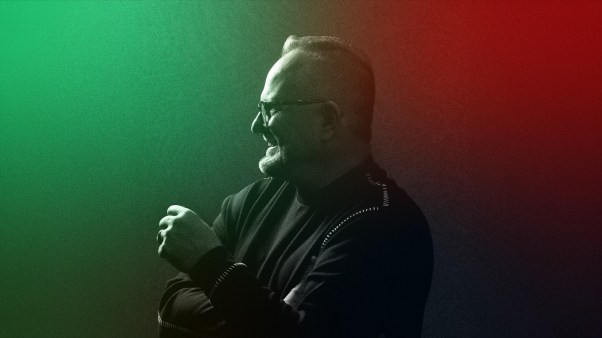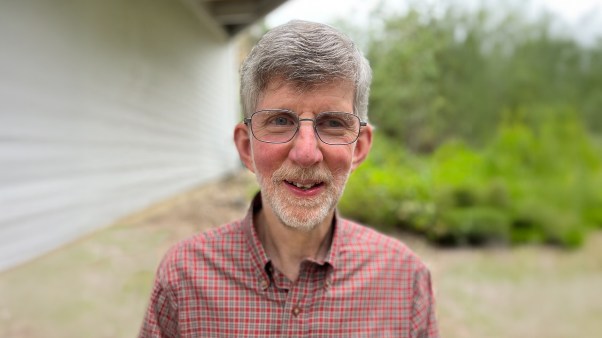Ever since James warned church leaders to avoid showing favoritism, pastors have wrestled with how to minister to individuals with significant talent, power, or resources.
Whether the wealthy farmer in a rural congregation or the corporate CEO in a suburban one, ten-talent people can make a big impact for good or ill. Will they dominate a congregation—or refuse to invest their lives in a local fellowship at all? How can church leaders help ten-talent people channel their abilities and resources into God’s kingdom?
To answer these questions, Leadership editors sat with Bob Shank and Bob Buford.
Bob Buford is chairman of the board and CEO of Buford Television, Inc., a Texas-based cable TV company. Bob is founder of Leadership Network, an organization that supports pastors of large churches, and The Foundation, an annual conference for high-capacity Christians. He is author of Half-Time: Changing Your Game Plan from Success to Significance (Zondervan).
Bob Shank is senior pastor of South Coast Community Church in Newport Beach, California. Before entering vocational ministry, he worked in the construction industry; in 1984 he sold his business and founded Priority Living, an outreach to the business and professional community. Bob is author of “Total Life Management” (Multnomah).
HIGHLY SUCCESSFUL PEOPLE CAN SOMETIMES BE INTIMIDATING. HOW CAN A PASTOR RELATE WELL TO THEM?
Shank: One way is to realize how insecure that leader may actually be. Go to Wrigley Field in Chicago and look around. Who’s more secure—the usher who takes the tickets, or the pitcher on the mound? The reality is, the usher is more secure. He’ll be written up in the sports section when he hits the thirty-year mark, and he’ll talk about the great pitchers he’s watched on the mound.
He’s secure, yet he lives at a much lower economic level than the pitcher does. He probably thinks, If I could just make what that guy on the field makes, life would be great.
That pitcher, though, could be traded tomorrow or cut from the team at the end of the season. The guy who seems on top of the world is the guy in that stadium who is least secure.
The same system that will reward him handsomely if he wins will pull the rug out from under him if he loses—even though the loss is driven by circumstances he never controlled.
Buford: The insecurity, for me at least, was “I am so busy doing this, and I’m so thrilled by doing it, I wonder if I’m not making a Faustian bargain?”
A fair number of people—particularly those in large companies in which they don’t control their destiny—ask that question. You’re being paid $100,000 or more, but in the process you’ve sold your soul. You’re wondering whether the next boss that comes in isn’t going to get paid $2 million a year to lay off fifteen thousand people, one of them being you.
Shank: A lot of things play into this insecurity. The youth culture says you’re going to peak in your thirties: you’re going to find out whether you’re a major league player, an AAA player, a AA player, a A player, or cut. Not knowing where you measure up in terms of the field is an uncertainty.
At the Indy 500, it doesn’t do any good to blow up your engine in the qualifying laps, because if you’re not running for the main event, you can’t even compete, let alone place. Yet many people suffer the delusion that the first half of life is the main event. They will sacrifice things that are irreplaceable in the effort to peak too soon. The family becomes the sacrificed commodity. Their faith becomes the compromised value.
I am convinced more all the time that life begins at 50 for our generation. So business leaders are asking, “How do you prepare to be in the race when the race really does begin?”
LEADERSHIP: So successful people are asking questions of meaning? Why now?
Buford: Chronologically, our generation has twenty-five additional years of life that our predecessors didn’t have. And they’re not twenty-five years where we’re broken up from being behind a plow. At 50, your network is at its peak, your Rolodex is large, your financial base is in pretty good shape, and you know something about yourself that you didn’t know when you were 38. When you’re 50 years old, you know what your skills are.
WHAT NEEDS OF TEN-TALENT PEOPLE ARE OFTEN UNMET?
Buford: People are not hired, paid, or rewarded for being balanced, whole human beings in their work environment. They’re rewarded for being highly specialized and for being on someone else’s agenda—the large company’s agenda, the law firm’s agenda, the client’s requirements. A lot of people lose touch with the “me” underneath all the performing.
Peter Drucker once told me that’s why people go to pubs. There, they discover what he calls the “third person.” The first person is the work person—the role you are at work. The second person is the role you are when you walk in your home. The third person is who you are when not confined by those other two roles. Perhaps the church equivalent of a pub is a small group. There, in a group setting, you’re able to be that person God designed you to be. You’re not circumscribed by your roles as sales vice-president or parent.
SO THE TEN-TALENT PERSON NEEDS THE SECURITY AND IDENTITY THAT A CHURCH CAN PROVIDE IN CHRIST?
Shank: Absolutely. If you’re a banker, and you go to work today and your bank has just merged and they don’t need you anymore, your identity has just been taken away from you without any say.
If your identity is being a husband, and your wife just fell in love with her tennis instructor and lets you know that she wants half and she’s out the door, your identity is gone.
The question of who you are is one of those profound questions that even successful people have not necessarily answered. In fact, their discovery of identity is complicated by their success. The more successful you are in your field, the more you tend to be niched in most people’s thinking.
HOW HAVE YOU DEALT WITH THE ISSUE OF IDENTITY?
Shank: I had a serious auto accident twenty-two months ago, and when neurologists looked at me, they said, “You’re going to be fine. We just don’t know whether you’re going to have your mental edge and your memory.”
I said, “Can I tell you what I do for a living? I stand for an hour in front of people every weekend trying to convince them that I’m one step ahead of them on the most important issues of life, and I do it from memory!”
What I had to deal with was, “Do I find my identity at work or do I bring my identity to work?”
Two days after I left the hospital, the phone rang three times in an hour. It was this guy (pointing to Buford) and Howard Hendricks and Greg Laurie calling to say, “How are you doing? What happened? What’s the prognosis?”
The last thirty seconds of each of those twenty-minute conversations was, “Oh, and how are things going at the church?” It was the afterthought. What it told me was, “Those closest to me aren’t close because I pastor South Coast Community Church.”
Buford: When I was 34, I asked myself, “What am I going to lose with all this gaining?” All people who are highly successful are tightly focused—a neurosurgeon, a salesman for IBM, an investment banker. They are asked to work longer and harder in an increasingly focused and narrow area of life.
The question for me was, “What would be there if my life were rounded and successful in more ways than financial or business success?” I wrote down six areas that were important to me, business being only one.
When a business leader goes to church, he or she may get the impression, “I’m only needed to serve here; it’s just like my job.” But when a church communicates, “We’re here to help you discover who you are,” that changes everything. That makes the church distinctively different from other involvements a business leader can have.
WHAT DISTINCTIVES CAN THE BUSINESS LEADER BRING TO THE CHURCH?
Shank: Business leaders understand the mission of their business. They create an environment in which the mission can take place. They develop people, creating teams that pursue the mission. And they manage resources because resources are finite and must be maximized. That’s what business leaders do.
Those same things need to happen for a church’s mission to be achieved.
Buford: This makes those leaders partners—not antagonists or competitors.
HOW CAN PREACHERS CONNECT WITH BUSINESS LEADERS IN SERMONS?
Shank: By helping them understand how truth is life changing. By answering the questions they didn’t know anybody else was asking. Maybe most important, by telling them they can count for much. To the degree they are willing to be committed to a primary loyalty, to Christ, they can count for much.
I came to Christ as a little kid. As I was coming through school, the impression in my mind was there were two buses leaving for life. One was the team bus, and the other was the fans. The team bus had the professionals on it—the pastors and the missionaries. The boosters got on another bus. When they got to the stadium, they sat in the stands and watched the team do their deal.
But you had to make a decision: Were you going to be on the team bus or the booster bus? The booster bus went to the marketplace, and the team bus went to the seminary. I got on the marketplace bus, and it was years before I heard that the buses had been mislabeled. Both buses were team buses. Sadly, I never heard that in church.
Buford: The question most people are asking when they listen to a sermon is, “So what?” And specifically, “So what for me?” This is especially true of high-energy leaders. Sermons that speak to them often have a form like this:
Stage one is connection. They talk about some issue or situation in the person’s life; the listener connects with the person delivering the message.
The second stage is Scripture. The preacher answers the question, “What does Scripture have to say about marriage, about career, about the things of my life? How does the eternal connect with my issue?”
The third stage is application. Listeners are asking, “If Scripture has just spoken to me, how can I apply it? Business people live in an action-oriented world and want to take action steps.
The fourth stage is a vehicle. People want to know, “What does that mean to me? What can I do about it?” So someone must provide a vehicle through which they can do something: Sign up in Room 402. Attend a class about evangelism. Participate in ministries to the poor.
WHEN A BUSINESS LEADER WALKS INTO CHURCH, WHAT MAKES HIM OR HER FEEL, “THERE IS A PLACE HERE FOR ME”?
Shank: Initiated interaction on the part of the pastor. An interest expressed on a personal level between the pastor and that business leader to assess the availability of his or her time and talent.
I won’t approach someone with my need: “I’ve got five spots I’m trying to fill for this prison ministry.” Rather, I approach the person in a way that says, “I recognize your distinctives. I want to get a sense from you about the availability of your time and your talents and to think with you whether there’s a place that fits you.”
Buford: The central concept is ministering to people as individuals—whether a young working mother with three preschoolers, or a 55-year-old executive. The church should minister no more and no less to each of those people.
Leaders in a church can start with the individual—rather than with the church jobs—and ask “What can we do to help you to grow in Christ?”
One reason I’m interested in churches is that few of us can function effectively outside an organization anymore. When we find our function—how we’re designed by God—then we quickly need to find a place to exercise that.
The greatest management text ever written was not written by Peter Drucker; it was written by St. Paul. In 1 Corinthians 12, he said we’re like a body. Can the hand say to the eye, “I have no need of thee?” He goes on to say that God has placed each of us exactly where he’d have us in the body. The big issue for lay people, especially the ones we’ve been discussing, is to find out where they fit, how they’re designed.
Shank: It’s easy for us pastors to think the kingdom work that’s important is done in a church.
I have a friend who retired from his dental practice in his early forties. After playing at his recreation for a few years, he wanted to make his life count for something. He became involved in ministry in his community, working at his own expense. He was also a deacon at his church.
One Sunday, the twelve deacons were lined up in front of the church to serve Communion. The pastor was introducing the deacons and their respective roles.
He came to my friend and said, “Well, here’s So-and-so. You know, if we could ever get him to channel any of that energy that he channels into the community into the church, he could really count for something.”
That’s now his former church.
The experience reminded me: we need to honor the work someone is doing in the name of Christ outside the church.
HAVE YOU HONORED SOMEONE IN THAT WAY?
Shank: Yes. I’ve been close to two guys for a decade. One is in our church now, the other attends another church in the community. They have consistently not had a volunteer assignment in the church. They’re both builders, and they’ve been leaders in the county building industry association.
A few years ago, they were instrumental in creating a non-profit entity, under the auspices of the building industry association, that brings materials and labor from building companies to serve organizations that provide housing for homeless people.
Most of those organizations are Christian organizations. So two builders have gotten the professional building industry to move millions of dollars of resources into Christian organizations.
For a pastor to give honor the work someone is doing in the name of Christ outside the church is tremendously empowering.
The question of who you are is one of the most profound questions that even successful people have not necessarily answered.
1996 Christianity Today/LEADERSHIP Journal









